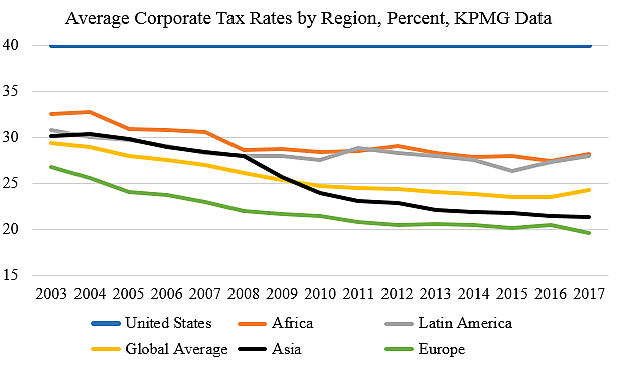The House and Senate have passed bills cutting the federal corporate tax rate from 35 to 20 percent. This overdue reform will spur capital investment, strengthen the economy, and reduce tax avoidance. Republicans have long championed this reform, and President Trump had proposed an even lower rate.
So it was surprising that the president commented Saturday that a 22 percent rate would be fine. That would be snatching a defeat from the jaws of victory. Congressional Republicans should stick with their 20 percent. Senator Marco Rubio is incorrect that there is no economic difference between a 20 and 22 percent rate. Economics is all about decisions at the margin, and in an increasingly competitive world, every cost reduction for American businesses helps.
Policymakers need to remember that in America state taxes pile on top of federal. So while in Britain the federal rate of 19 percent is also the overall rate, our overall rate in California would still be 27 percent even as we cut our federal rate to 20.
A Council of Economic Advisors Report on corporate taxes noted that international investment flows are “highly responsive to cross-border differences in tax rates.” And further that “an additional margin along which changes in corporate tax rates are likely to affect growth is through profit shifting by U.S. firms to foreign subsidiaries … This profit-shifting has increased substantially since the 1990s.”
So for more investment flowing in, and less paper profits flowing out, we should cut our corporate tax rate as low as we can. Most other countries have figured this out, as the chart below shows.
According to KPMG, the average corporate tax rate across 171 countries today is just 24 percent. The United States with a federal-state rate of 40 percent is the outlier at the top of the chart. Rates have fallen in Africa, Asia, Europe, and Latin America. American businesses generally face their biggest competition from businesses in Asia and Europe, and those are the regions with the lowest rates.

